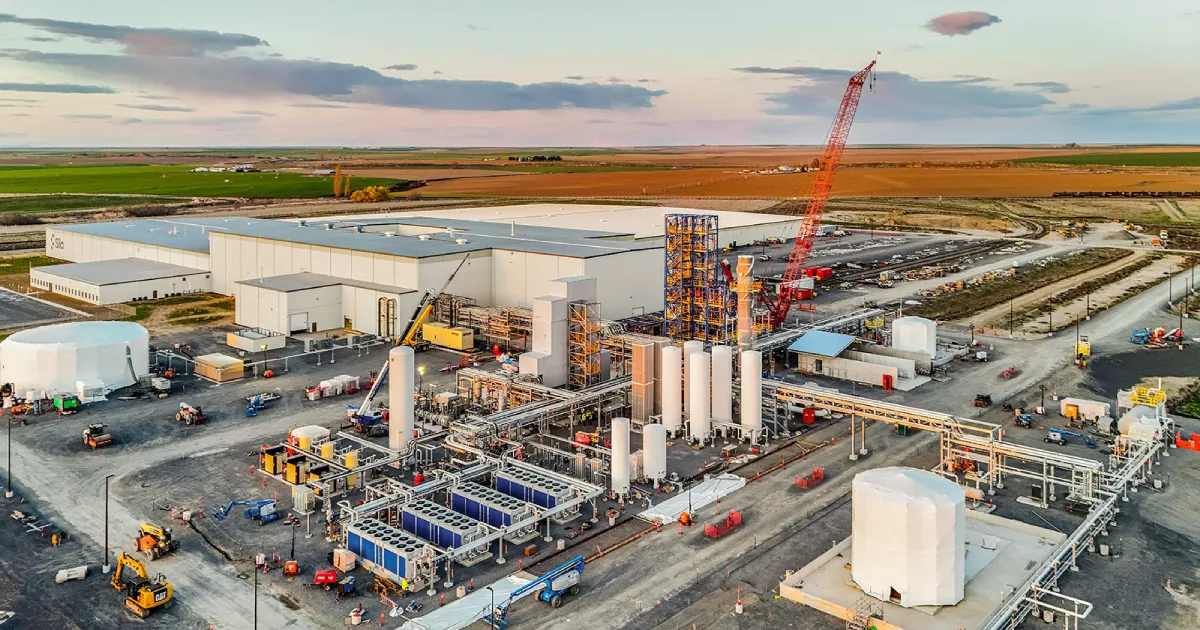Sila opens first U.S. silicon anode factory in Washington

Sila, a battery materials startup that has spent more than a decade developing advanced silicon anode technology, has officially started operations at its new facility in Moses Lake, Washington. The milestone marks the launch of the first large-scale silicon anode factory in the West, a development that could significantly accelerate the adoption of longer-range, faster-charging electric vehicles (EVs).
The factory, nearly two years in the making, will initially have the capacity to supply enough silicon anode material for 20,000 to 50,000 EVs annually. With planned expansions, Sila projects the site could eventually meet the demand for as many as 2.5 million vehicles.
A Leap in Battery Performance
Silicon anodes are widely considered the next frontier in lithium-ion battery technology. By replacing traditional graphite anodes, silicon can increase battery energy density by as much as 50%. This improvement translates into longer driving ranges and faster charging times — two of the biggest hurdles facing mass EV adoption.
Sila’s co-founder and CEO Gene Berdichevsky, who previously worked on the original Tesla Roadster battery system, believes the company’s innovation gives the U.S. a rare opportunity to lead in the global battery race.
“When you invent something new, it’s a lot easier to then produce it where you invent it,” Berdichevsky told TechCrunch.
Strategic Partnerships and Early Markets
Sila already has supply agreements with Panasonic and Mercedes-Benz, making automakers and their suppliers the primary focus of the Moses Lake plant. But the company is also diversifying, selling its material to drone makers, satellite operators, and consumer electronics companies.
The startup raised $375 million in 2023 to finance the facility and bring its technology closer to commercialization at scale.
Competing in a Crowded Field
Sila isn’t alone in the silicon anode race. Group14 Technologies, another player in Moses Lake, operates a joint facility in South Korea with SK Innovation. Meanwhile, Fremont-based Amprius is producing smaller quantities of its silicon anode material in the U.S. and working with Chinese partners for larger-scale output.
What sets Sila apart, Berdichevsky argues, is scale:
“This is really the first auto-scale silicon anode plant in the U.S.”
Why Moses Lake?
Sila chose central Washington for its mix of low-cost hydropower, abundant land, and proximity to a critical raw material supplier. Cheap energy is particularly important, Berdichevsky explained, because the economics of battery production hinge heavily on energy input costs.
The first production runs at the new facility will serve to validate consistency against the company’s earlier R&D output from Alameda, California.
Cost, Supply, and the Road Ahead
Sila projects that in a few years, its silicon-based batteries will be cheaper than those made with graphite anodes sourced from Western suppliers. Though Chinese companies can currently produce graphite more cheaply, Berdichevsky notes that they benefit from heavy subsidies and looser environmental regulations.
Beyond cost advantages, silicon anodes could reduce the need for expensive metals like nickel while maintaining — and even improving — performance. “Now you have that same performance, plus you get fast charge, plus you get domestic supply, and you get it at a lower cost,” Berdichevsky said.
Looking ahead, the company envisions multiple U.S. sites to meet surging EV demand. With industry forecasts pointing to 10 million EVs on U.S. roads within a decade, Berdichevsky sees expansion as inevitable. Eventually, Sila plans to extend operations into Europe and Asia, but for now, the focus is firmly domestic.
“As a country, if you don’t make stuff, where’s your pride going to come from?” Berdichevsky said. “I think it’s just so important for us as a country to continue to learn to do this and create the ecosystem so that we can never fall behind again.”
A Turning Point for U.S. Battery Manufacturing
The opening of Sila’s Moses Lake plant signals more than just another factory coming online — it represents a potential turning point in U.S. clean energy manufacturing. If the company can deliver on its promises, American-made silicon anodes could soon underpin the next generation of EVs, helping automakers push past current limitations and positioning the U.S. as a serious contender in the global battery race.





